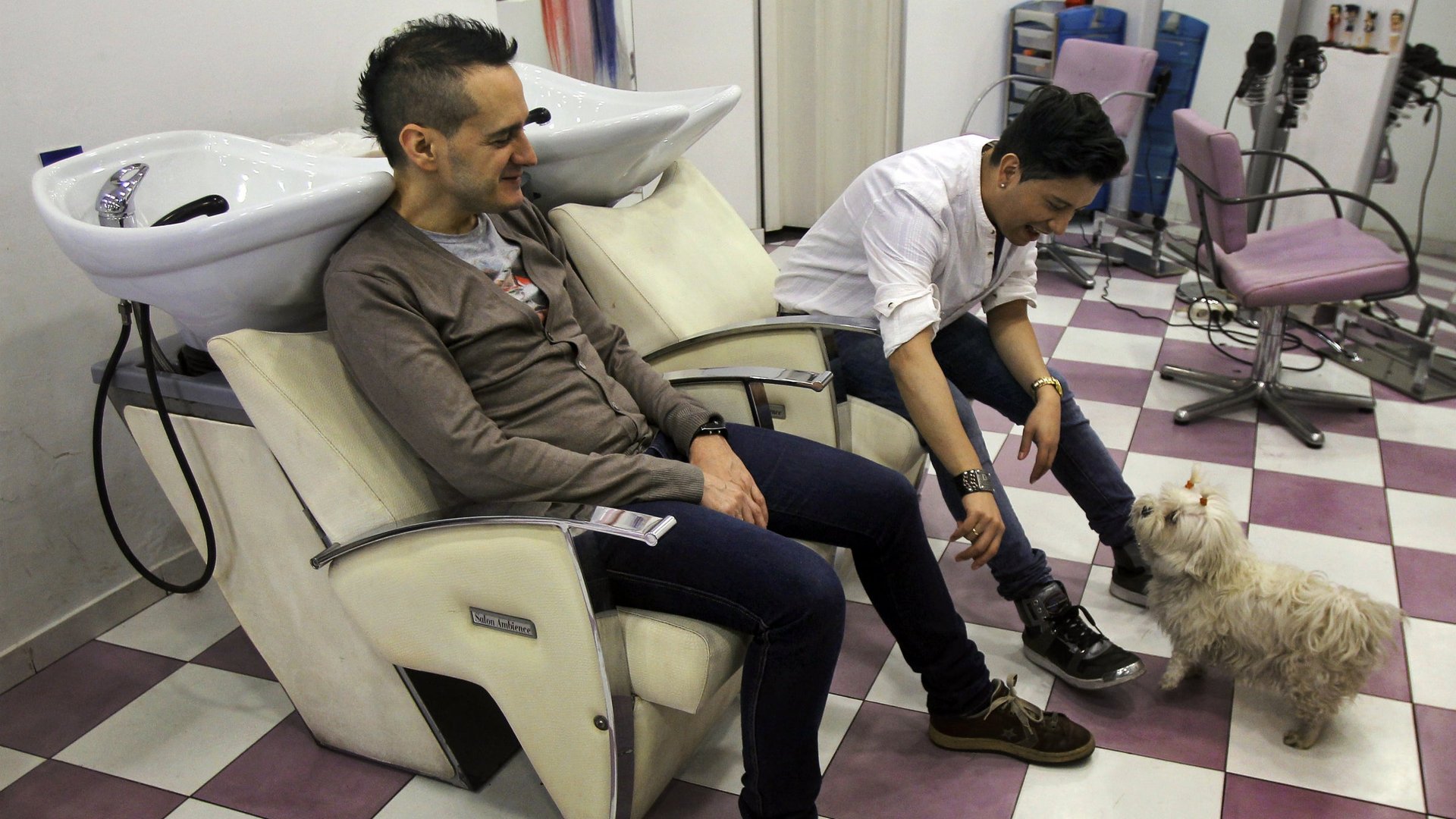Austerity is hurting Spanish hairdressers, and other things global CEOs have told us
We’re coming up on one month since quarterly earnings season blew in, bringing with it dour updates on the state of the recession-bound European economy. We’ve pieced together some of the color that’s come through post-earnings conference calls. While Italy and Spain continue to look fairly miserable, the news isn’t uniformly bad. The United Kingdom and Ireland seem to be showing signs of life. And the outlook for Germany can seem downright upbeat.


We’re coming up on one month since quarterly earnings season blew in, bringing with it dour updates on the state of the recession-bound European economy. We’ve pieced together some of the color that’s come through post-earnings conference calls. While Italy and Spain continue to look fairly miserable, the news isn’t uniformly bad. The United Kingdom and Ireland seem to be showing signs of life. And the outlook for Germany can seem downright upbeat.
The Good
- Mitigated gloom. “We saw growth in the U.K. We saw growth in Germany. It was not just across the board bad news,” Gregory J. Hayes, CFO, United Technologies.
- German growth. “Germany in itself is on a growth trajectory, albeit on a lower level,” Siegfried Russwurm, CEO of German conglomerate Siemens‘ industrial division.
- Raise a glass. “UK is back to growth, Ireland is back to growth and I think these are encouraging signals,” Gilles Bogaert, managing director, finance at French liquor giant Pernod Ricard.
The Bad
- They don’t scream for ice cream. “Northern Europe held up better with the UK and France both showing some volume growth. But in the South in countries like Spain, Italy and Greece, our markets and our sales were hit hard. The decline in the quarter came in ice cream and spreads,” James Allison, head of investor relations, M&A and strategy for Anglo-Dutch consumer products giant Unilever.
- Cars feeling flat. ”In terms of the peripheral markets, including Spain, Italy, Greece, Portugal, Ireland, where most of the fall-off came, we’re seeing the rolling averages there flatten out. What we haven’t yet seen is any sign of an increase off that stabilized low level,” Stuart John Rowley, controller, Ford Motor.
- Hardly electrifying. “Southern Europe has been especially difficult with Spain, Italy and France all declining double-digit or close to it,” Emmanuel Babeau, EVP-finance, at French electrical components and distribution company Schneider Electric.
- Not feeling industrious. “Europe is really problematic because industrial production is negative in every single country in Europe and negative by 6% in Italy and 8% in Spain. That’s a big drop, and that’s reflected in our results as well as many other company’s results,” James Sawyer, CFO of Praxair, which manufactures and sells compressed and liquid gases for hospital and industrial use.
- Small beer in Greece. “When we go to Greece, you see volume that looks like that it is bottoming out now, and that is positive news. One caution, however, for Greece is that you see that we realize that with the cheaper brands in our portfolio, which is logic if you look at the situation in Greece. And we have an economy brand, which is called the ALFA brand, and that is the big grower in the portfolio, and obviously, that works with lower margins than Heineken and Amstel. But … it feels that after three years of heavy decline, double-digit declines in Greece, we are seeing the bottom of the market,” Reinout Duco Hooft Graafland, CFO Heineken.
- Beauty is suffering. “One of the reasons that we are suffering so much on the Professional is the weight of Southern Europe. In Southern Europe, the evolution is very negative … in this first quarter, there were some special incidents. For example, in Spain, if you want just to take an example, the Spanish government increased from 8% to 21% the rate of the [value added tax] on hair dressers and definitely it doesn’t help. So, it’s also very difficult in Italy. So, we are right now for the moment very impacted by some part of the world where the business is very negative,” Jean-Paul Agon, CEO, L’Oréal.